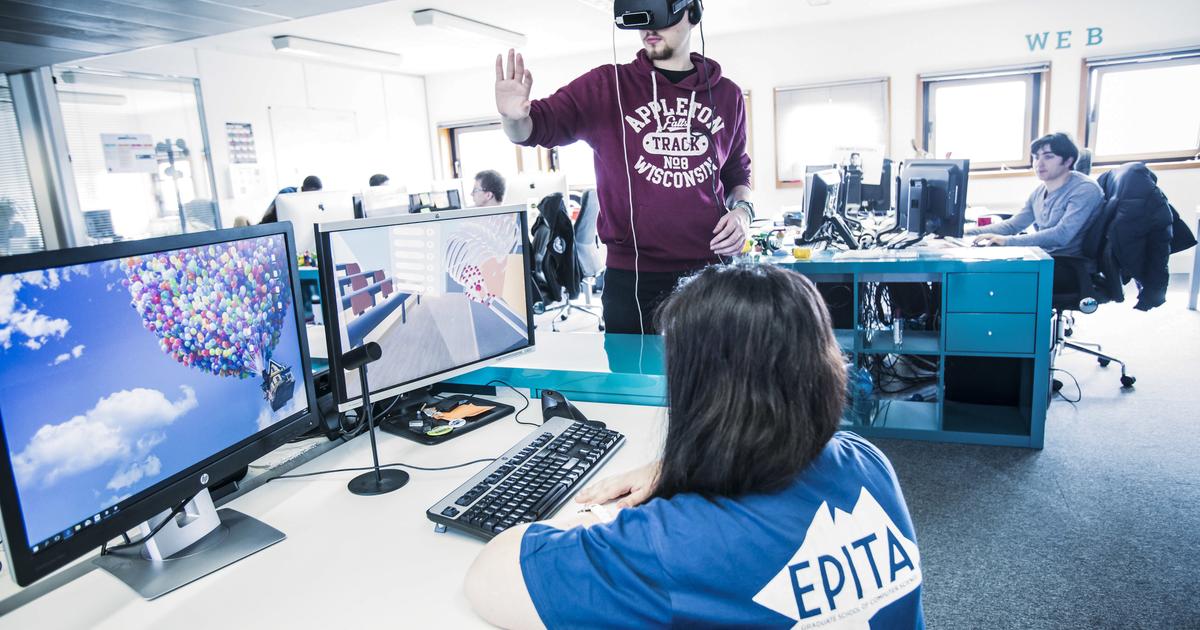Enlarge image
Which subject is the right one?
The decision is not always easy.
Photo:
Werner Dieterich / Westend61 / Getty Images
Anyone who wants to go to university in Germany after graduating from school can choose between more than 20,000 courses.
The adage "If you have a choice, you are spoiled for choice" applies here without exaggeration.
In other words: the decision for the advanced courses at school is a piece of cake compared to what comes afterwards.
To help you choose, we took a closer look at the 30 most popular subjects.
In the "Subjects explained" series, current and former students describe the entry requirements in their subject, what is important in the course and what they want to do with it later.
The overview of places 1 to 10.
1. Business Administration
Business economists deal with the question of how companies work.
Which departments and business processes serve which purpose?
How do you find the right price for a product or service?
And how can you market all of this profitably?
During their studies, they take subjects such as marketing, finance and statistics.
Pamina Heermann told us about her business studies at the University of Mannheim.
She was enthusiastic about bookkeeping, whereas microeconomics and statistics were considered "panic subjects".
But in Heermann's opinion, many first-semester worries were unfounded.
2. Computer science
Computer scientists are particularly in demand in our digitized world.
But if you want to find a well-paid job later, you first have to assert yourself during your studies.
There, prospective computer scientists learn how to program, how to use new technologies in the most sensible way or how to protect data.
Julian Pfeifer studied computer science at the Frankfurt University of Applied Sciences.
Now he is applying what he has learned from his studies at Deutsche Bahn - as an IT Operations application manager.
3. Law
Lawyers can take on various tasks after their studies: They can work as lawyers, as notaries, public prosecutors or judges.
But before that, one of the things you have to do is pass the two state exams - a major hurdle for many.
Lisa Klughammer now works as a lawyer.
Before that, she studied law at the University of Augsburg.
Here she explains why you should always link your studies with your own everyday life.
4. Industrial engineering
Industrial engineers are often deployed at interfaces because they have both technical and management know-how: For example, if the management wants a very affordable product, while the engineer wants a very well-engineered product, industrial engineers provide them.
Philipp Wiener is one of them, he studied industrial engineering at the Leibniz University in Hanover, both as a bachelor's and master's degree.
Why he failed the first exam, what he learned from it and how he found his job at a technical management consultancy.
5. Mechanical engineering
Mechanical engineers accompany the entire development process of a product.
These can be surgical devices, remote-controlled robots, e-scooters or power plants.
During their studies, they take subjects such as physics, computer science, materials science or mechanics.
Christina Kwade studied mechanical engineering at the Technical University of Munich.
Especially at the beginning she found the workload very high and was happy to be able to study with fellow students.
Here she explains, among other things, why she found lectures on medical technology particularly exciting.
6. Medicine
Medical professionals later not only work as doctors in hospitals or medical practices.
You also run laboratories, work in research or work for the health department.
Louisa Daunert has many medical professionals in the family and has chosen the same career path.
She studied medicine at the private University of Witten / Herdecke - and often felt overwhelmed at the beginning, she explains.
But over time she got used to the Latin technical terms and what, as she puts it, "the very own language of medicine."
7. Psychology
Anyone interested in studying psychology may wish to work as a psychotherapist later in: in.
But graduates not only help to cope with personal crises, they also prepare reports for courts or work in HR departments, for example.
Julia Weresch completed her bachelor's degree at Ulm University and studied subjects such as social psychology, developmental psychology and biological psychology.
In her bachelor's degree, she felt a high pressure to perform because she needed a very good NC for the master's degree.
8. Economics
Anyone who studies economics learns both how economic processes run in companies and what this has to do with macroeconomic issues such as growth, recession or inflation.
After finishing school, Joshua Bolte first trained as a wholesale and foreign trade clerk and then decided to study.
He completed his bachelor's degree in economics at the University of Osnabrück - he particularly liked the modules in business informatics.
What helped him at the beginning of his studies: the tips from the student council.
9. German studies
Prospective German scholars take subjects such as Introduction to German Medieval Studies, Modern German Literature and Linguistics.
What do you do with it later?
For example as a teacher: in work, in journalism, as a lecturer: in publishing houses or in management consultancies.
David Brißlinger studied German at the Ludwig Maximilians University in Munich and has already registered a small business as a copywriter.
He advises taking as many courses as possible, especially at the beginning - and not just those that you are already interested in.
10. Electrical engineering
Electrical engineers: after graduation, for example, they develop microcontrollers - i.e. small computers - for smartphones, plan large power plants or design sensors for smart home devices.
To do this, they take courses such as higher mathematics, physics, basic electronics or electrical power engineering.
Tobias Reifert completed his bachelor's degree in electrical engineering at the Karlsruhe University of Applied Sciences - Technology and Economics.
He likes to work with hardware and to design circuits and sensors.
Here he explains why he decided to specialize in information technology.







